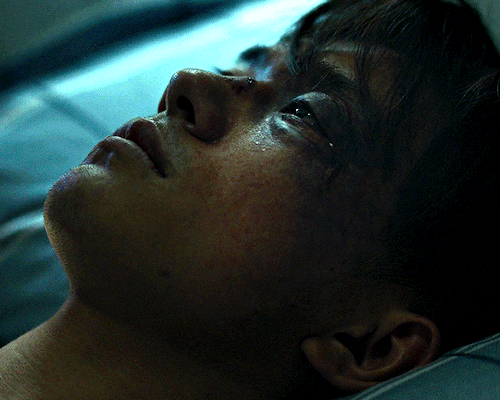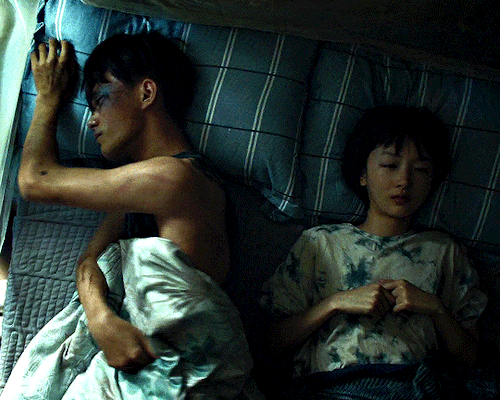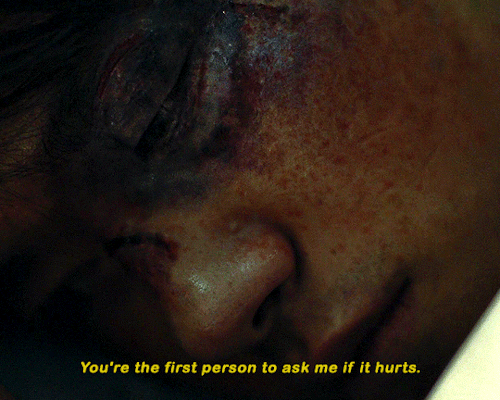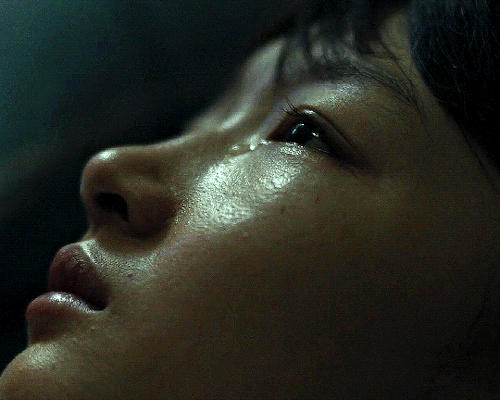Stop Motion Movies Are So Comforting And Joy And A Lot Of It Is Insanely Underrated And Deserves Way
Stop motion movies are so comforting and joy and a lot of it is insanely underrated and deserves way more attention
More Posts from Sayaosi and Others
My Thoughts About Fantastic Mr. Fox (2009)

Fantastic. Mr Fox is my FAVORITE film, ever. There is so much I could say about it… I don’t even think I can cram it into one post, so I’m not going to.
There’s so many relationships that I could analyze and give my opinions on.. but for this post, I’m going to focus on the relationships between Ash, Felicity (Mrs. Fox), and Foxy (Mr. Fox).
I believe that Mr. Fox never wanted a serious relationship with Felicity. At the very least, he wasn’t ready for one.
Mr. Fox gets an honest job to provide for them (writing newspaper articles), their home is fine, and they seem to be making enough to get by… but it’s clear to me that he never wanted to settle down and take the responsibility of being a husband or a father in the first place. (This was forced onto him with the unexpected pregnancy). Felicity makes him promise her to stop doing what he loves (stealing birds), because it's too dangerous for the situation that they're in now.
I think Mr. Fox knew from the start that he’d never be satisfied living this "simple life". He needs the approval of others to feel good about himself, and he didn’t feel like he deserved any praise for what he was doing. He needed to be doing something "fantastic". This is what pushes him to not listen to his lawyer and buy a house that they can’t even afford.
When they move to the bigger house, it never seems like Felicity has strong feelings about the change. She was happy with the simple life they had, and she thought he was too.
Mr. Fox is one of the most selfish main character’s I’ve ever seen portrayed in film. Even when their home is shot at, all he can think about is himself. He takes no accountability for bringing trouble to their door, he doesn’t apologize, and he doesn’t listen to anyone. Even Kylie told him it was a bad idea to start stealing birds.. and he completely dismissed him.
In my opinion, Felicity put up with his nonsense for far too long.
When they’re forced to dig underground, Felicity is furious (rightfully so). Mr. Fox, once again, takes no responsibility for what he’s done, and he says it’s just how he is (he’s just a “wild animal”). I know there’s a lot of symbolism behind them referring to themselves as wild animals, but this just proves that he is unbelievably self-centered.
Throughout the film, his son, Ash, has spent his time trying to live up to the image that he has of his father (someone fantastic, someone to be proud of). Which is ironic, of course, since Mr. Fox isn’t even proud of himself.
Ash’s view of his father has destroyed his self-esteem. His father is dismissive and distant; not appearing to think highly of him, or paying much attention to him. This is especially clear when Kristofferson starts staying with them. Mr. Fox praises Kristofferson and pays more attention to him than Ash. He invites Kristofferson on their heists and is angry at Ash for trying to go too. This causes Ash to treat Kristofferson with little to no respect, because he’s jealous.
In my opinion, the way Mr. Fox thinks of his son is clear. Ash is why he had to stop doing what he loved, and he resents him for this. He can’t be proud of Ash, because he isn’t proud of himself.
The turning point in this film, (not only for all of their relationships with one another, but also for Mr. Fox’s development), was when Kristofferson was taken hostage by the farmers.
Mr. Fox finally apologizes to Felicity for what he has done.. he realizes that he has caused so much harm to not only his family, but the entire forest. He questions why he is the way that he is, and he understands that he needs to change. Felicity loves Mr. Fox so much, but the damage has already been done. She realizes that she never should have married him, and she regrets doing so.
Instead of blaming Ash for Kristofferson getting caught, Mr. Fox realizes how his distant behavior has affected Ash. He tells Ash that it’s not his fault and that he is proud that he’s his son. Ash is so happy to hear those words from his father that he starts crying.
This film is such a heart-wrenching painting of a dysfunctional family. Mr. Fox makes amends with his wife and son, and accepts that he needs to do better. He may be selfish and stubborn, but he is trying to change. He has the ability to change! This is what I love so much about this film. Mr. Fox is a realistic character and this is the story of a real family, full of flaws and mistakes.
The film ends with Mr. Fox making a toast about change and hope. Things are going to be very different, but he doesn’t think that’s a bad thing. He’s apologized to Felicity and Ash. He knows that he needs to be a better husband and a more supportive father, (especially now that he has another child on the way). He knows that he needs to learn to be happy with what he has. Most importantly, he’s learned that he already has something fantastic, a family that loves and cares about him.
Amores perros (2000)

Dogs shouldn’t have to put up with us. The characters in Amores perros create a cruel world, or perhaps they think they can only succeed in an illegal manner. But there are dogs in all of these people’s lives, too. They come in many forms, but they suffer in similar ways. Cofi is a rottweiler who has a very “no thoughts head empty” energy during many scenes. But he is a killer. In another world Richie is like a toy but suffers because his masters are incompetent. He gets lost under the ground and maybe dies. Iñárritu understands the experiences of his characters and uses them to great effect. The dogs in this film are vessels for empathy. They distill their owners’ existences down to the most powerful truth. Much blood is spilled but the dogs are constant. It is a cruel experience for the audience because there is no rest for them; they simply have to survive the film.
Amores perros represents Alejandro Gonzalez Iñárritu’s best and worst instincts. It has all his talent but also all his worst impulses. He adopts a narrative structure like the films of Quentin Tarantino or others, a tapestry of characters interweaving. The camera moves with a hand-controlled panic to pull us into the world. We constantly bump into other narratives, one line intersecting with the other as these characters affect each other in small or large ways. Minor details in one moment are important in others. Iñárritu creates a trap for his characters and then has doubts if he wants to engage. At times he has great power. It’s exciting and sad. I too aspire to be a radical liberal turned doggo-tor. But it’s incredibly hard to watch the scene when all the dogs in our protect die because Cofi only knows one way of life. Humans destroy the lives of dogs. I openly cried for the final minutes. We cannot learn. We cannot change. Young people never learn to find healthy outlets for their emotions. The only way to succeed is to offend and cause suffering.
THE RULES
SIP
Someone says ‘Cofi’ or ‘pandejo’.
Grainy TV footage.
Crazy baby toys.
An advertisement for Enchant appears somewhere.
Sick ‘00s beat drops.
A sum of money is named.
BIG DRINK
A part title appears onscreen.
The narrative jumps perspectives.
A scene isn’t abjectly miserable.
This is so good 💚

Follow me on Twitter link in bio!
Reblogs are appreciated!!


Fallen Angels (1995) dir. Wong Kar-wai








BETTER DAYS 少年的你 (2019) dir. Derek Tsang




The Shining (1980) Hannibal (2013-2015)

Shinichi Sakamoto
okay but why are there such good roasts in crime and punishment? like oh my god, they're all so petty and the conversations are gold! it's so ridiculous but at the same time i'm so entertained. it's like watching a reality show in book form if that makes sense.
Kazu-kun & Chizuru


I talked about Kazu-kun last time, and now I wanted to talk about how his character mirrors Chizuru's.
They are both close friends of Sakuko who fall in love with her. Which obviously is a problem since Sakuko is aroace and not interested in dating her friends.
And I want to talk about how they are almost perfect opposite of each other.
Kazu-kun struggles a lot to understand how Sakuko can be uninterested in love, and gets pushy about it (refusing to let her break up with him, moving in and asking invasive questions). Chizuru has known (and accepted) for a long while that Sakuko isn’t interested in love and therefore that her feelings would never be reciprocated.And because the show already has Kazu-kun to explore the amatonormativity-is-a-bitch side of things, Chizuru gets to just be an example of a very common tragedy of human relationship — sometimes you just don’t want the same thing, and it’s sad but there is nothing to do about it.
Kazu-kun is very clear about his feelings for Sakuko, to the point of making them everyone else’s problem. Chizuru hides her feelins for Sakuko to avoid bothering her with them, to the point nobody knows they even exist.
Kazu-kun does everything he can to stay at Sakuko’s side, including forcing his way into moving in with her and refusing to let her break up properly. Chizuru cuts off contact, moves away and changes her number.
The first thing I want to talk about is how this is so very clearly a gendered dynamic.
Kazu-kun, has I’ve said already, starts off as a very Entitled Straight Man™. And that informs everything he does in how he treats his feelings to Sakuko. He expects his feelings to be returned the same way most straight men are taught they’re owned women’s attention. He wants to be present in her life and he wants answers to his questions and he has very little qualms about how he gets what he wants, because once again men are taught they deserve women but rarely to care how their actions make others feel.
On the other hand, Chizuru is not only a woman, but she’s also a shappic woman in love with another woman. Both these things heavily influence how she deals with her feelings for Sakuko.
Firstly, she’s a woman. She has most likely been taught not to bother anyone with her feelings, while learning to be mindful of other people’s feelings. She’s also aware that unwanted romantic attention can hurt, in a way most men aren’t. She’s of course especially aware of it in relation to Sakuko, since she’s known her for years and knows very well Sakuko isn’t interested in love with anyone.
Secondly, she’s a woman in love with another woman. And like a lot of other sapphic women, she’s afraid of her attraction to women being invasive, dirty, or predatory. It’s particularly true here because Sakuko is a long-time friend, so attraction can feel like it’s “tainting” an otherwise “pure” friendship, or “invading” with “dirty feelings” what was supposed to be a safe space; and because Sakuko is AroAce, which in this perspective makes her even more “pure”, and therefore makes the “stain” even more unforgivable.
Hence why she runs away and cut all ties with Sakuko — when Kazu-kun doesn’t, even though he’s facing the same unrequited-love situation.
So yes, the dynamic between Kazu-kun and Chizuru is 100% a gendered dynamic. They could have had the same parallels with two men, but it would have felt and read very differently.
The second thing is: in the end, the both hurt Sakuko.
Chizuru, by desperately trying not to impose her feelings on Sakuko, still imposes her decision to leave and cut ties. Sakuko is hurt when their plans to live together fall through, worried when she can’t reach Chizuru, and hurt again when Chizuru explains why she cut ties and that they can’t go back to being friends (yet).
Kazu-kun drags her into a relationship she doesn’t actually want, then refuses to break up with her, then invades her privacy. Sakuko ends up needing to be the one to officially break up which hurts her too (though Kazu-kun accepts it with grace and keeps being her friend).
Even though they had opposite ways to deal with their feelings for Sakuko, they both did it in a way that worked for themselves without asking Sakuko’s input, and ended up hurting her in the process.
It’s the illustration of a very old fear of mine, that I believe is fairly common among aros : loosing friends because they fell in love with me. It’s not a fear exclusive to aros; it’s the driving tension in almost all friends-to-lovers stories; but it’s very prevalent in the aro community for obvious reasons.
It’s also an example of how amatonormativity fucks up relationships. Both Kazu-kun and Chizuru are first acting under the idea that romantic love comes first and is more important than anything else — that it justifies breaking up a very close friendship with no explanation or invading someone else’s privacy.
But thirdly, having two parallels situations also allows for nuances.
I have talked a lot about amatonormativity in these analysis, for very good reasons (such as it being the show’s main theme). But it’s not the end-all be-all. Even in a perfect society with no stupid rules and expectations, people’s feelings would still be messy and hurt sometimes. And having two different relationships to explore the friend-falls-in-love-with-your-aro-ass-what-do-you-do allows the show a real space for nuances.
Sometimes deconstruction works. Sometimes you take a step back and realize most of your problems came from assumptions and rules that have no real basis, and you’re able to work through them.
Kazu-kun does come to the realization that things can be done differently, which is shown when he asks Sakuko to be in a QPR with him instead of a romantic relationship. It’s him realizing that while their feelings may never be the same, they could make a relationship work if they focus on what they actually want to do together — for example, they enjoy karaoke together as new colleagues, as lovers, and as situationship-it’s-complicated-we’re-maybe-on-a-break. And when Sakuko refuses, he’s the one reassuring that they can stay friends, because he now understands that they can keep enjoying karaoke as friends.
But sometimes feelings are just messy. Sometimes even once the air is cleared you still hurt. Sometimes you don’t feel and want the same things and no amount of deconstruction or compromise will solve that.
Chizuru is still hurting that her feelings aren’t and will never be reciprocated. And the show allows her that. She hurt Sakuko, yes, but the situation is unfair to both of them. They don’t want the same thing and it’s hurting both of them and no one is really in the wrong.
Could Chizuru have dealt with the situation better? Obviously yes. Is there amatonormativity (and probably some internalized homophobia) at play? Yes of course. But even outside of all that, there are still tangled, hurting feelings.
And because the show already has Kazu-kun to explore the amatonormativity-is-a-bitch side of things, Chizuru gets to just be an example of a very common tragedy of human relationships — sometimes you just don’t want the same thing, and it’s sad but there is nothing to do about it.
And Chizuru does say that she wants to go back to cutting Sakuko’s hair, to be her friend. But she needs the space to sort her feelings first.
no line in cinema has understood me in the way that “I love you too. but I shouldn’t have married you” from Fantastic Mr Fox has understood me. The idea that she wanted a family and a good, safe life, and she wanted him too. But no matter how hard she loves him, he can’t change. She’s never ever going to be able to get exactly what she wants and her child will always have a complicated relationship with his father and there will be this quiet realisation they have to live with. I love you so much, but this was our mistake. and now we’ve made it theirs too.
-
 w1zardcore liked this · 3 weeks ago
w1zardcore liked this · 3 weeks ago -
 landfilloftrash liked this · 3 weeks ago
landfilloftrash liked this · 3 weeks ago -
 predawnite reblogged this · 3 weeks ago
predawnite reblogged this · 3 weeks ago -
 predawnite liked this · 3 weeks ago
predawnite liked this · 3 weeks ago -
 thatnerdio liked this · 3 weeks ago
thatnerdio liked this · 3 weeks ago -
 silverbackwolf14 reblogged this · 3 weeks ago
silverbackwolf14 reblogged this · 3 weeks ago -
 thedreammweaver reblogged this · 3 weeks ago
thedreammweaver reblogged this · 3 weeks ago -
 thedreammweaver liked this · 3 weeks ago
thedreammweaver liked this · 3 weeks ago -
 fuckintozier liked this · 3 weeks ago
fuckintozier liked this · 3 weeks ago -
 bejeweled-bedazzled liked this · 4 weeks ago
bejeweled-bedazzled liked this · 4 weeks ago -
 ariadne-doodles liked this · 4 weeks ago
ariadne-doodles liked this · 4 weeks ago -
 late-night-stars1 liked this · 1 month ago
late-night-stars1 liked this · 1 month ago -
 lemedstudent2021 liked this · 1 month ago
lemedstudent2021 liked this · 1 month ago -
 beelissa liked this · 1 month ago
beelissa liked this · 1 month ago -
 alovesongtheywrote liked this · 1 month ago
alovesongtheywrote liked this · 1 month ago -
 andthenthersjas liked this · 1 month ago
andthenthersjas liked this · 1 month ago -
 astheriverruns liked this · 1 month ago
astheriverruns liked this · 1 month ago -
 yaddnatghil liked this · 1 month ago
yaddnatghil liked this · 1 month ago -
 fictionalsimp09 liked this · 1 month ago
fictionalsimp09 liked this · 1 month ago -
 hawaiianshirttaco64 reblogged this · 1 month ago
hawaiianshirttaco64 reblogged this · 1 month ago -
 hawaiianshirttaco64 liked this · 1 month ago
hawaiianshirttaco64 liked this · 1 month ago -
 phant0m-r0s3 liked this · 1 month ago
phant0m-r0s3 liked this · 1 month ago -
 man-i-love-cows liked this · 2 months ago
man-i-love-cows liked this · 2 months ago -
 prettyprincessfailure liked this · 2 months ago
prettyprincessfailure liked this · 2 months ago -
 lunareclipse06 liked this · 2 months ago
lunareclipse06 liked this · 2 months ago -
 dirtondenim liked this · 2 months ago
dirtondenim liked this · 2 months ago -
 corxoran liked this · 2 months ago
corxoran liked this · 2 months ago -
 yearrningsnoopy liked this · 2 months ago
yearrningsnoopy liked this · 2 months ago -
 3lovelyroses reblogged this · 2 months ago
3lovelyroses reblogged this · 2 months ago -
 cookiqueen13 liked this · 2 months ago
cookiqueen13 liked this · 2 months ago -
 fellowonthebeach liked this · 2 months ago
fellowonthebeach liked this · 2 months ago -
 nayru9572 liked this · 3 months ago
nayru9572 liked this · 3 months ago -
 master-apology reblogged this · 3 months ago
master-apology reblogged this · 3 months ago -
 nonaferatu reblogged this · 3 months ago
nonaferatu reblogged this · 3 months ago -
 shadypeachrunaway liked this · 3 months ago
shadypeachrunaway liked this · 3 months ago -
 twelvebooksstuff reblogged this · 3 months ago
twelvebooksstuff reblogged this · 3 months ago -
 27ratsinahoodie liked this · 3 months ago
27ratsinahoodie liked this · 3 months ago -
 maelstroms-blog liked this · 3 months ago
maelstroms-blog liked this · 3 months ago -
 makar0-0n liked this · 3 months ago
makar0-0n liked this · 3 months ago -
 apathicace liked this · 3 months ago
apathicace liked this · 3 months ago -
 ninjaaa-go liked this · 3 months ago
ninjaaa-go liked this · 3 months ago -
 mal3f1cent reblogged this · 3 months ago
mal3f1cent reblogged this · 3 months ago -
 mal3f1cent liked this · 3 months ago
mal3f1cent liked this · 3 months ago -
 kkkkkkkkk1000 liked this · 3 months ago
kkkkkkkkk1000 liked this · 3 months ago -
 hffghhf liked this · 3 months ago
hffghhf liked this · 3 months ago -
 ragingtothestars reblogged this · 3 months ago
ragingtothestars reblogged this · 3 months ago -
 ragingtothestars liked this · 3 months ago
ragingtothestars liked this · 3 months ago -
 sunsetsdream reblogged this · 3 months ago
sunsetsdream reblogged this · 3 months ago -
 sunsetsdream liked this · 3 months ago
sunsetsdream liked this · 3 months ago

She/her | 22 | 🩷💛🩵-💚🩶🤍🩶💚Blogging about my various interests including TV shows, film, books, video games, current events, and the occasional meme. My letterboxed: https://boxd.it/civFT
123 posts